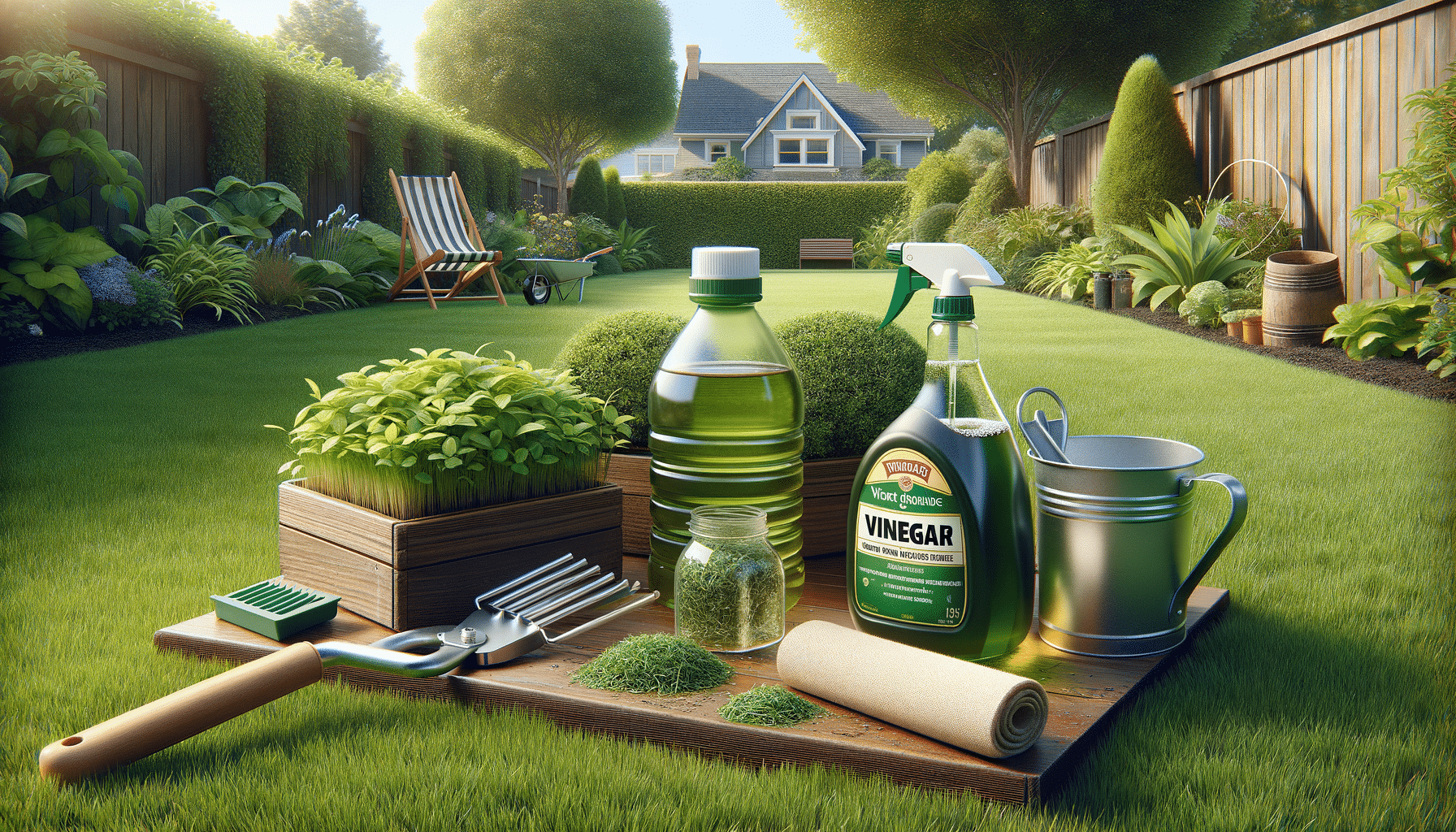
Using Vinegar for Lawn Care: Natural Methods for Weed and Soil Management
Introduction to Natural Lawn Care
In recent years, the shift towards eco-friendly and sustainable gardening practices has gained significant momentum. Homeowners and gardening enthusiasts are increasingly seeking alternatives to conventional chemical treatments for their lawns. Vinegar, a common household item, has emerged as a versatile and natural option for lawn care. Its ability to target weeds and adjust soil conditions without the use of harsh chemicals makes it a popular choice. In this article, we’ll explore the benefits of using vinegar for lawn care, delve into natural weed control methods, and discuss effective DIY lawn treatments.
The Role of Vinegar in Lawn Care
Vinegar is an acetic acid solution that can be used to manage weeds and improve soil conditions. Its acidic nature makes it effective in killing weeds by breaking down their cell membranes, ultimately leading to their demise. However, it’s important to note that vinegar is non-selective, meaning it can harm any plant it comes into contact with, including grass. Therefore, precision in application is crucial.
When using vinegar for weed control, consider the following:
- Apply vinegar on a sunny day for maximum effectiveness.
- Use a spray bottle for targeted application to avoid damaging surrounding plants.
- Consider using a higher concentration of vinegar for tougher weeds.
Beyond weed control, vinegar can also be used to adjust soil pH levels. If your soil is too alkaline, vinegar can help lower the pH, making it more suitable for grass growth. However, always test your soil before making adjustments to avoid unintended consequences.
Natural Weed Control for Lawns
While vinegar is a powerful tool in natural weed control, there are other methods that can complement its use. Mulching, for instance, helps suppress weed growth by blocking sunlight and retaining soil moisture. Organic mulches, such as wood chips or straw, are particularly effective and environmentally friendly.
Another approach is manual weeding, which, although labor-intensive, is a surefire way to remove weeds without harming your lawn. Regular mowing and maintaining a healthy lawn through proper fertilization and watering can also prevent weed proliferation by creating a dense grass cover that leaves little room for weeds to thrive.
Consider integrating these natural weed control methods with vinegar applications for a comprehensive strategy that promotes a healthy and vibrant lawn.
DIY Lawn Treatments
Creating your own lawn treatments can be both cost-effective and rewarding. Besides vinegar, there are several DIY recipes that can enhance lawn health. For instance, a mixture of water, dish soap, and vinegar can serve as a natural insect repellent, targeting pests without harming beneficial insects.
Composting is another valuable DIY method. By creating your own compost, you can enrich your lawn with essential nutrients, improving soil structure and promoting healthy grass growth. Additionally, aerating your lawn by hand or using a rented aerator can improve water and nutrient absorption, leading to a lush and resilient lawn.
These DIY treatments, when combined with natural weed control strategies, can significantly reduce the need for chemical interventions, fostering a more sustainable lawn care routine.
Conclusion: Embracing Natural Lawn Care
Adopting natural lawn care practices not only benefits the environment but also enhances the health and appearance of your lawn. Vinegar, with its multifaceted applications, is a valuable addition to your lawn care toolkit. By understanding its proper use and integrating complementary methods like mulching, manual weeding, and DIY treatments, you can achieve a thriving lawn that is both beautiful and eco-friendly.
Ultimately, the journey towards sustainable lawn care is about balance and understanding the unique needs of your lawn. With patience and persistence, you can create an outdoor space that is not only visually appealing but also in harmony with nature.


